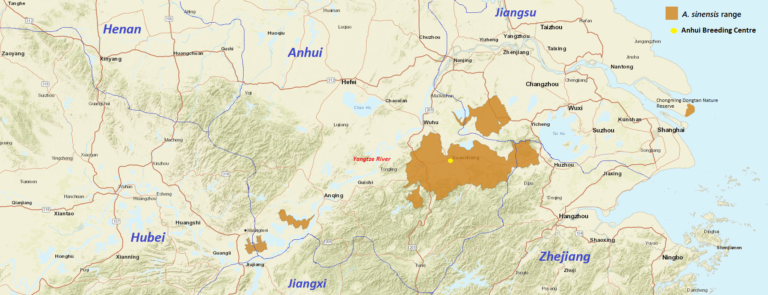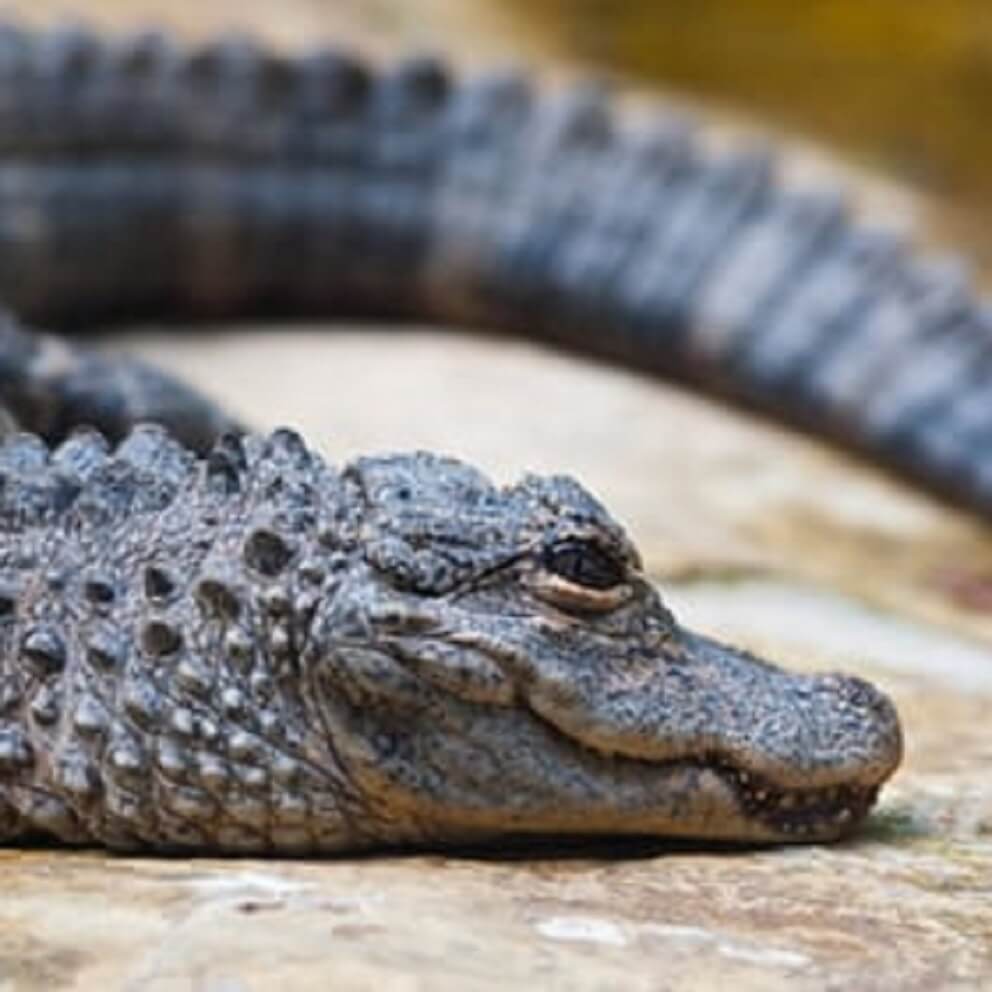The Chinese alligator is classified as Critically Endangered on the IUCN Red List of Threatened Species.
It is listed on CITES Appendix I.
Red List Category & Criteria: Critically Endangered A1c, D ver 2.3
Year Published: 1996
Date Assessed: 1996-08-01

Countries: China (Anhui, Jiangsu, Zhejiang)

The Chinese alligator originally ranged through much of China. However, today this species is mostly restricted to a 433 square kilometre reserve in the Anhui province of the lower Yangtze. At this point, the alligator’s geographic range has been reduced by 90%.
Reintroduction efforts are currently underway in three other provinces in eastern China.
Chinese alligators are mainly active at night and do much of their hunting under the cover of darkness. They feed on aquatic invertebrates (mainly snails, clams, and mussels, for which their teeth are specially adapted), and vertebrates such as fish. Like all crocodilians, they are opportunistic and will take other prey when available, including waterbirds and small mammals. Unfortunately, their taste for ducks has historically seen them persecuted by local duck farmers!
The Chinese alligator is one the world’s most endangered crocodilians.
Recent progress by the Chinese government means the future outlook is a little brighter. Habitat destruction has been the major cause of decline, with most wetland areas being affected due to human population pressures. Today both Chinese and international law protect it.
Breeding centres are the main focus of re-establishing the species. The largest of them, the Anhui Research Center for Chinese Alligator Reproduction (ARCCAR), was founded in 1979, and stocked with over 200 alligators collected from the wild over the following decade. This facility now has many thousands of alligators in captive conditions. With the help of the council of China, some alligator habitat has been restored and protected, and reintroducing captive-bred animals into wild habitats has commenced slowly. The wild population has now grown from a low of around 80 adults to perhaps 150. Some breeding in these reintroduced populations has been observed – a very positive sign!
Est. wild population: Less than 150
Main conservation threats: Habitat destruction, illegal hunting (historically), population fragmentation and persecution



